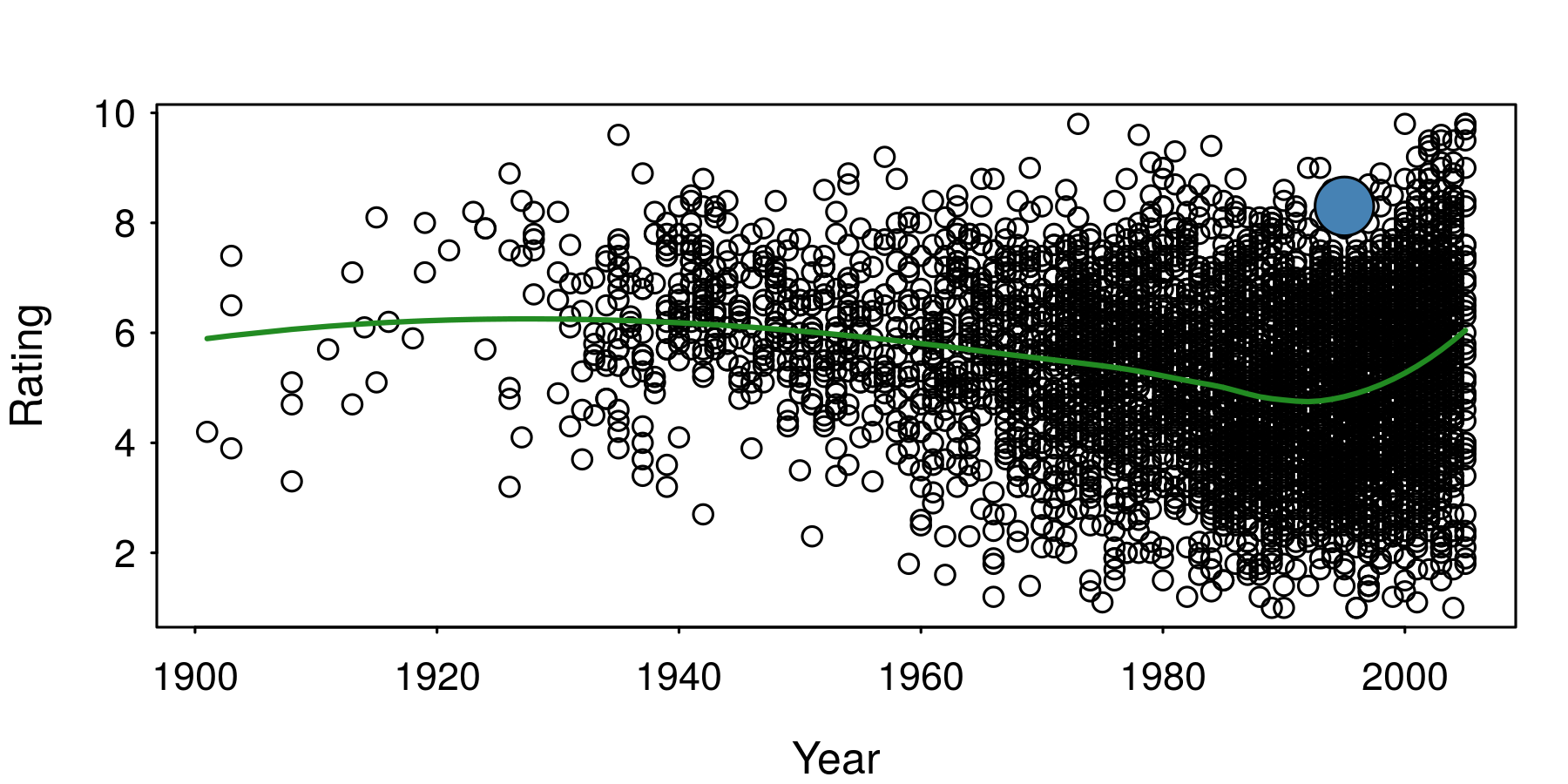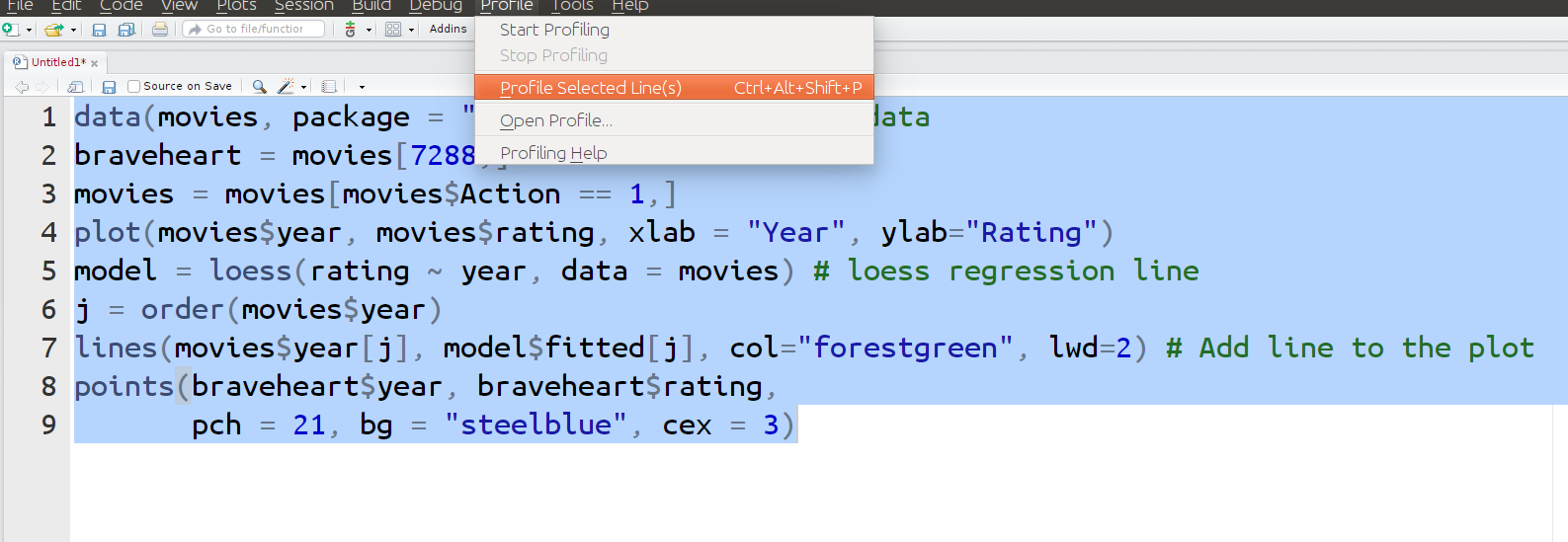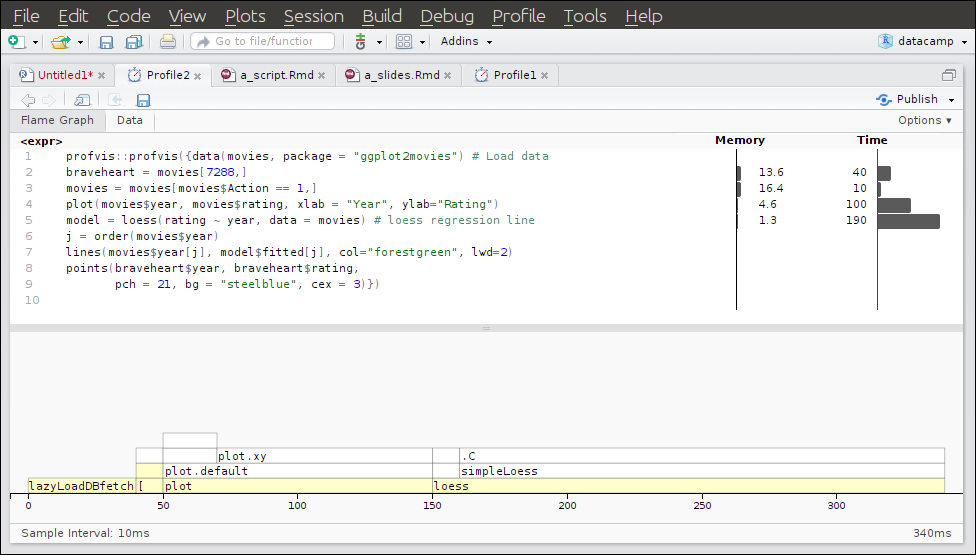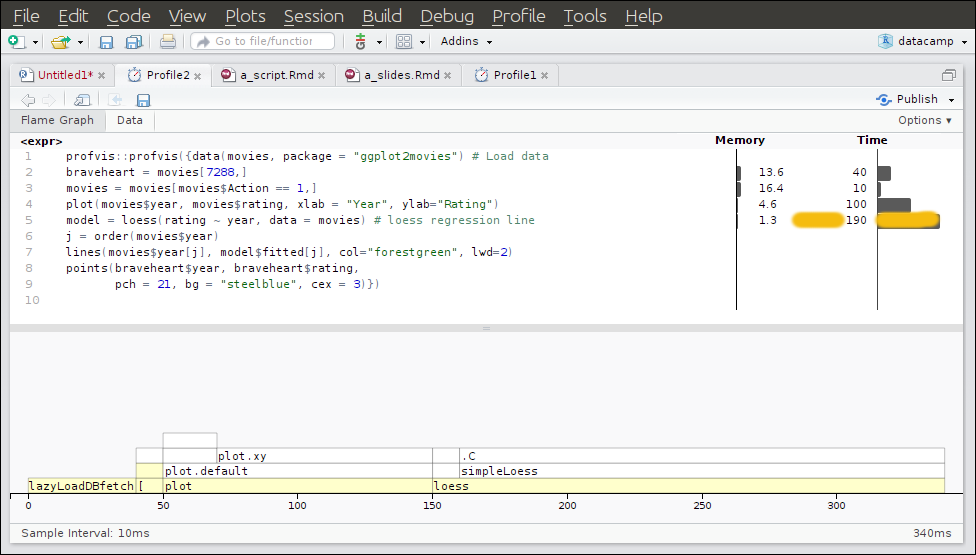How do I find the bottleneck?
Writing Efficient R Code

Colin Gillespie
Jumping Rivers & Newcastle University

Code profiling
The general idea is to:
- Run the code
- Every few milliseconds, record what is being currently executed
Rprof()comes with R and does exactly this- Tricky to use
- Use profvis instead
IMDB data set
- From the ggplot2movies package
data(movies, package = "ggplot2movies")
dim(movies)
58788 24
- Data frame: around 60,000 rows and 24 columns
- Each row corresponds to a particular movie
Braveheart
braveheart = movies[7288,]
| Year | Length | Rating |
|---|---|---|
| 1995 | 177 | 8.3 |

Example: Braveheart
# Load data data(movies, package = "ggplot2movies") braveheart <- movies[7288,] movies <- movies[movies$Action==1,]plot(movies$year, movies$rating, xlab = "Year", ylab = "Rating")# local regression line model <- loess(rating ~ year, data = movies) j <- order(movies$year) lines(movies$year[j], model$fitted[j], col = "forestgreen")points(braveheart$year, braveheart$rating, pch = 21, bg = "steelblue")

Profvis
- RStudio has integrated support for profiling with profvis
- Highlight the code you want to profile
Profile -> Profile Selected lines

Command line
library("profvis")profvis({data(movies, package = "ggplot2movies") # Load data braveheart <- movies[7288,] movies <- movies[movies$Action == 1,] plot(movies$year, movies$rating, xlab = "Year", ylab="Rating") model <- loess(rating ~ year, data = movies) # loess regression line j <- order(movies$year) lines(movies$year[j], model$fitted[j], col="forestgreen", lwd=2) points(braveheart$year, braveheart$rating, pch = 21, bg = "steelblue", cex = 3)})
Which line do you think will be the slowest?


Let's practice!
Writing Efficient R Code

